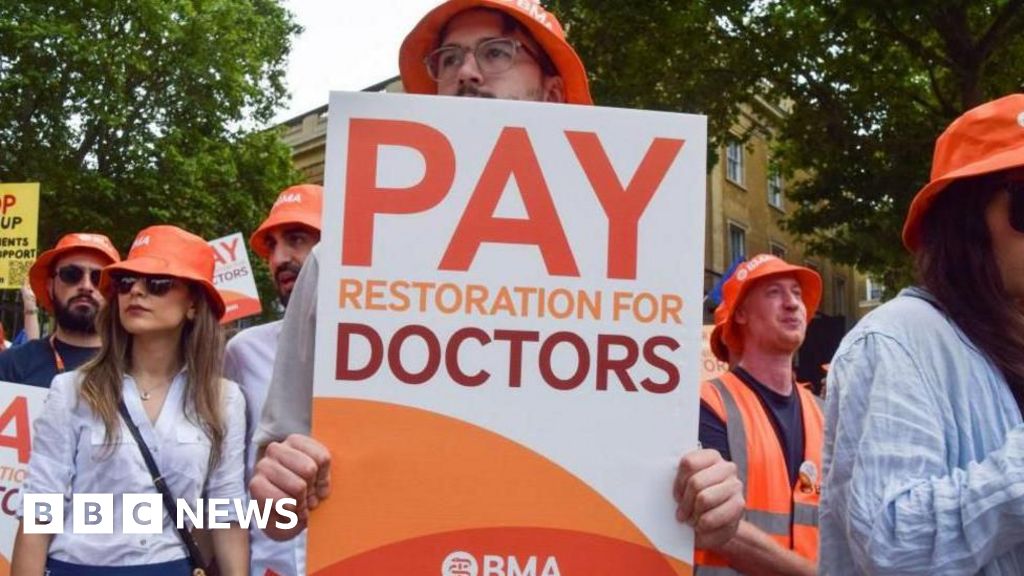NHS bosses have criticised the British Medical Association for its “increasingly hardline” approach in rejecting emergency requests for striking doctors in England to return to work.
A system known as ‘derogation’ is in place whereby the NHS can ask for resident doctors, who are taking part in a five-day walkout, to cross the picket line where patient safety is at risk.
As of Sunday evening, 18 requests by hospitals for derogations had been rejected in this strike – the twelfth in the long-running pay dispute – with nine accepted.
The BMA said while it was ready to respond to emergencies, poor planning and the push to continue non-urgent care in this strike had stretched staffing too much.
However, NHS England accused the doctors’ union of putting safety at risk, criticising a “remote BMA panel” for “second-guessing” doctors on the ground who were trying to look after patients.
A central committee of senior BMA doctors makes decisions on each derogation request.
NHS England said it was particularly worried about a number of requests relating to cancer care being turned down.
And it said the BMA was sitting on some requests for hours, with some rejected because hospitals would not pay striking doctors premium rates to come back in.
Before this strike started, the BMA had only agreed to five derogations during the whole dispute.
Resident doctors, the new name for junior doctors, are the largest group of medics in the NHS, representing half the doctor workforce. They include everyone from those fresh out of university through to doctors with up to 10 years experience.
It comes as the Royal College of Nursing is due to announce the results of its vote on pay with members expected expected to call for more than the 3.6% increase they are being given.
The BBC understands there will be an “overwhelming” rejection after the RCN previously described the rise as “grotesque” as nurses got a lower increase than doctors.
This does not block the pay award, but raises the prospect of the union running a formal strike ballot later in the year.
Among the requests agreed was a doctor to work at Nottingham City Hospital’s neonatal intensive care unit over the weekend.
Three BMA members were also brought in to work a night shift at the Northern General in Sheffield.
But the BMA rejected a request by Milton Keynes Hospital for a doctor to carry out prostate cancer checks. In that case the BBC understands a doctor did return to work under their own volition.
A BMA spokesman added: “It remains our position that this agreement will be available for the NHS to rely upon should a safety-critical, urgent event occur.
“That process is there day and night throughout industrial action, and we remain ready to respond to any emergency requests.
“However, we need to be clear that the purpose of this agreement is not to facilitate the continued delivery of non-urgent care at the same time as senior doctors are covering for residents taking industrial action, as trusts simply do not have enough senior doctors to do that safely.”
NHS England sources said it was particularly disappointed with the rejections as the national organisation was now vetting every request from hospitals to ensure a consistency in approach between different places.
Every request, they said, was based on “rigorous assessment”.
“We absolutely recognise the legal right for people to strike, but we also recognise that it’s essential to maintain as many services for patients as possible,” they added.
The five-day strike by resident doctors is due to run until 07:00 BST on Wednesday.
Source link : https://www.bbc.com/news/articles/cd0dz70zmx3o
Author :
Publish date : 2025-07-28 12:13:00
Copyright for syndicated content belongs to the linked Source.
